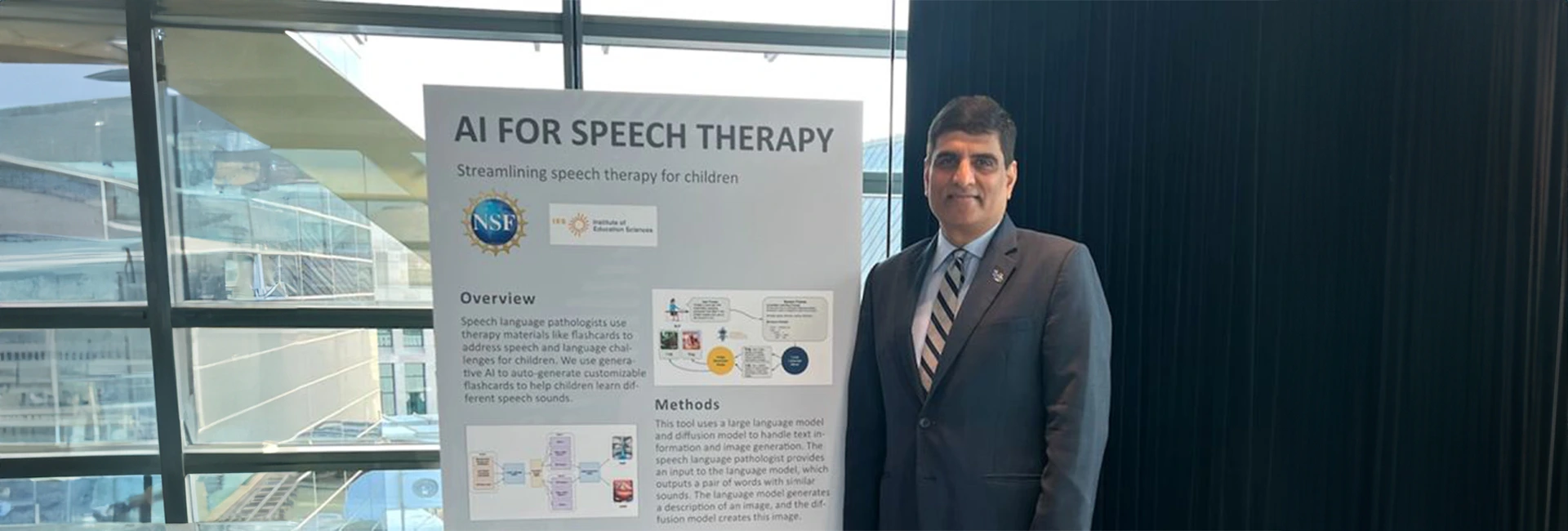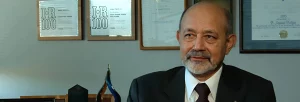(December 27, 2024) In an era where artificial intelligence (AI) evokes both awe and apprehension, there are pioneers working tirelessly to ensure its vast potential is harnessed for the greater good. One such visionary is US-based Dr Venu Govindaraju, a trailblazer in AI research whose contributions have transformed industries and improved countless lives. Recently honoured as the Person of the Year by the Council of Heritage and Arts of India, Dr Govindaraju’s illustrious career is adorned with awards and accolades. In 2024, he has also received the University of Buffalo’s President’s Medal in recognition of extraordinary service to the university.
From creating AI that deciphers millions of handwritten postal addresses across the United States, the UK, and Australia to spearheading initiatives that empower children suffering from learning challenges, the Global Indian‘s work exemplifies the transformative potential of technology. The Vice President for Research and Economic Development at the University at Buffalo and a SUNY Distinguished Professor of Computer Science and Engineering, his career spans decades of achievements that redefine the role of AI in solving real-world challenges. He is also the founder of the Centre for Unified Biometrics and Sensors, the Institute for Artificial Intelligence and Data Science and National Institute for Exceptional Education at UB.
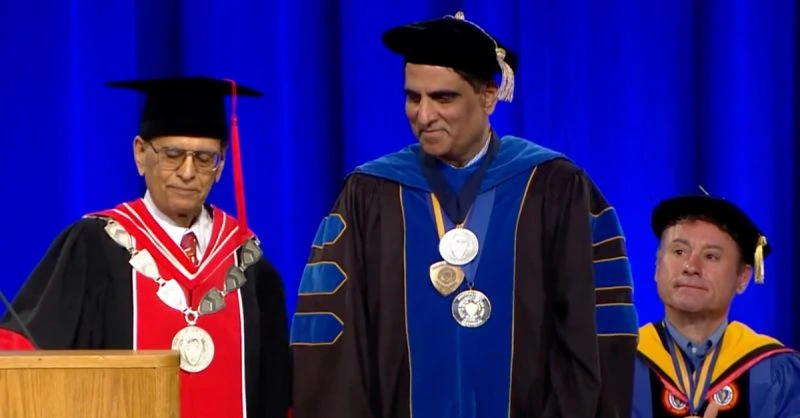
Dr Venu Govindaraju received UB President’s medal for his work in computer science, engineering and AI
A fascination with the unknown
“I love research because it gives me the satisfaction of conveying to the world, to an audience, to the other curious minds, as to how I have been able to discover something that they have not,” Dr. Govindaraju shared, highlighting his lifelong passion for pushing the boundaries of human knowledge.
Born and raised in India, Dr. Govindaraju’s journey to becoming a global AI pioneer began with his undergraduate studies in computer science at the Indian Institute of Technology, Kharagpur. “In the early eighties, computer science was just becoming mature enough to be offered as a discipline,” he recalled in one of Tech Talk episodes of University of Buffalo. After completing his degree, he followed the path of many ambitious students of his era, seeking advanced education in the United States. A generous presidential fellowship from UB brought him to the New York state’s flagship university, and it was a decision that set the stage for a remarkable career.
The early days: Innovating at Kodak and beyond
Dr. Govindaraju’s initial foray into research focused on computer vision. His PhD work, inspired by a partnership with Kodak, tackled the novel challenge of detecting human faces in photographs—a task that laid the foundation for the facial recognition technology we take for granted today. “In those days, it was a great novelty,” he remarked. Though Kodak’s film-based business ultimately faltered, the algorithms he developed proved prescient, influencing decades of advancements in AI.
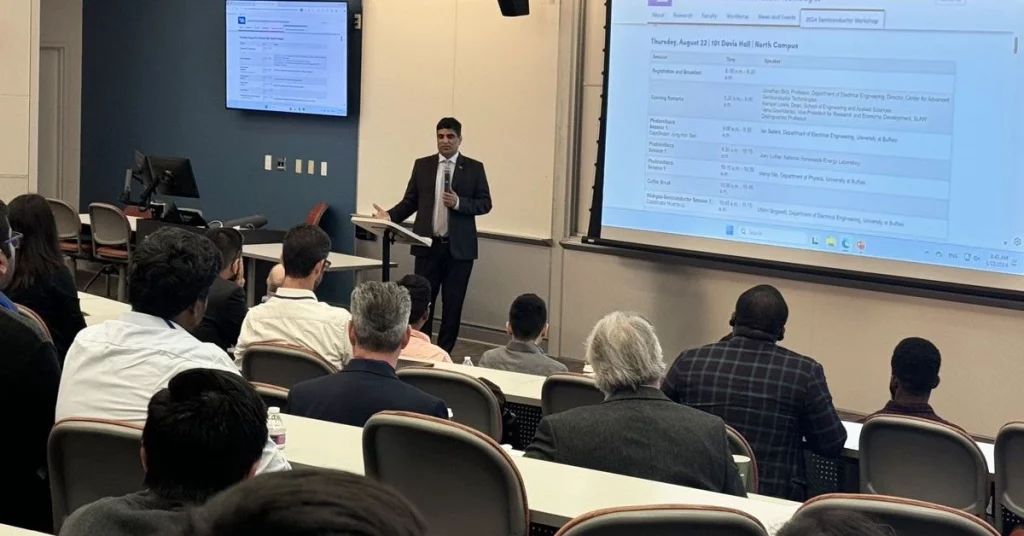
Dr. Venu Govindaraju
A subsequent postdoctoral position at UB’s Center of Excellence for Document Analysis and Recognition (CEDAR) marked a turning point in his career. Funded by the U.S. Postal Service, this project focused on the seemingly insurmountable problem of recognizing handwritten addresses. At a time when AI was experiencing its so-called “winter”—a period of stagnation and scepticism—Dr. Govindaraju and his team demonstrated its real-world applicability.
Revolutionizing postal automation
Under his leadership, UB’s team developed the world’s first autonomous system for interpreting handwritten addresses. This revolutionary system, capable of processing mail at 13 pieces per second, saved the Postal Service over $100 million in a single holiday season. “We were young, energetic, and full of bright ideas,” he said. “We took recognition rates from 0 percent to 14 percent in the first installation, and today, AI reads handwritten addresses with 96-97 percent accuracy.” In 1996, he was awarded a patent for his groundbreaking research in handwriting recognition and document processing, which became integral to automated mail delivery systems. His technology enabled USPS machines to automatically process nearly 25 billion handwritten mail items annually.
This breakthrough not only modernized mail processing across the United States but also inspired similar initiatives at Australia Post and the UK Royal Mail. The societal and economic impact of Dr. Govindaraju’s postal automation work remains a hallmark of applied AI innovation.
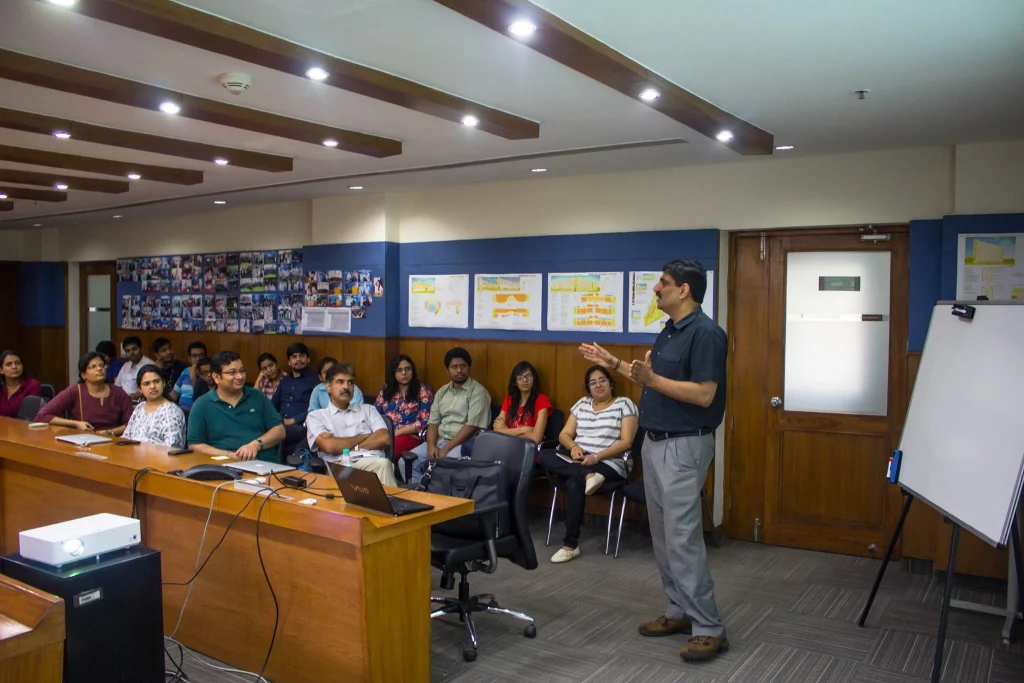
Dr Venu Govindaraju at IIT Delhi in 2016
AI for speech therapy
Dr. Govindaraju’s current focus is perhaps his most impactful yet: empowering children with special needs through AI. As Director and Principal Investigator of the National Institute for Exceptional Education, Dr. Govindaraju is leading a National Science Foundation-funded initiative to develop AI tools for early screening of children with dysgraphia and dyslexia. This initiative equips educators with AI-driven intervention tools, helping students overcome learning challenges and ensuring no child is left behind. He is leading a $20 million National Science Foundation-funded initiative to address speech and language challenges in children.
“This project seeks to solve two fundamental issues: scalability and equity,” he explained. With approximately 60,000 speech-language pathologists serving 3-4 million children in the U.S., the gap is significant.
The initiative aims to revolutionize how children with speech and language needs are identified and supported. Using advanced AI tools, it automates the screening process, ensuring no child is overlooked during the critical early years of development. The program also introduces classroom-embedded robots that observe, interact, and create personalized intervention plans tailored to each child’s needs. By addressing the dual challenges of accessibility and customization, Dr. Govindaraju’s work ensures that children, regardless of their location or socioeconomic status, receive the support they need to thrive.
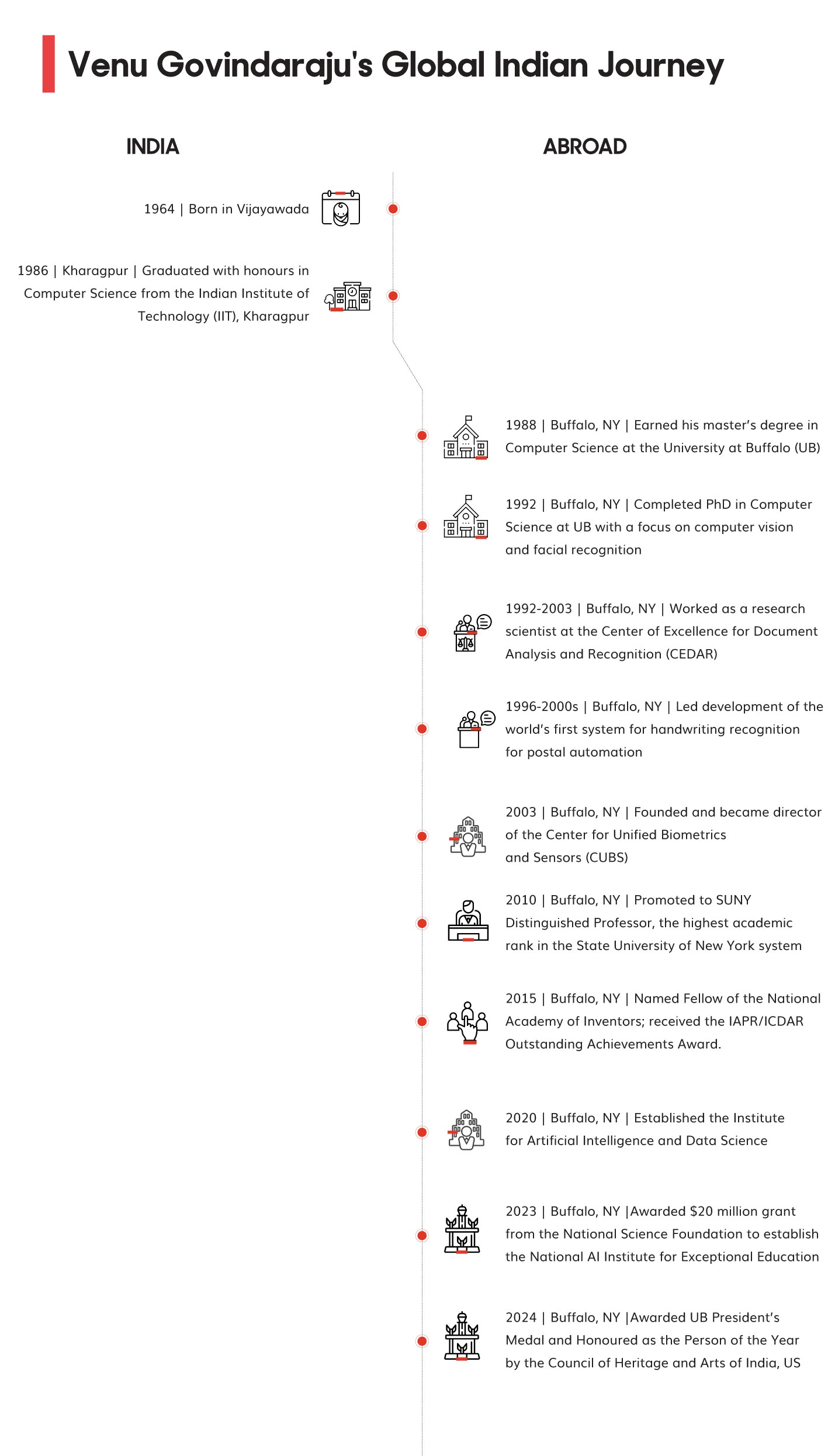
Beyond technology: The human-centric vision
For Dr. Govindaraju, AI is not merely a collection of algorithms but a tool to enhance human well-being. “This is such a nice social-good, feel-good kind of AI,” he noted. “In today’s discourse, where there’s so much apprehension about what AI can and cannot do, this is for sure something that we must do.”
His efforts extend beyond education. In collaboration with the New York State Department of Health, his AI techniques have been instrumental in early illness outbreak detection. These innovations underline his commitment to leveraging technology for societal benefit. He has also founded the Center for Unified Biometrics and Sensors (CUBS), which focuses on integrating machine learning algorithms with sensors to improve tech spanning from civilian devices to prototypes for the Department of Defense.
Safeguards and ethics in AI
While enthusiastic about AI’s potential, Dr. Govindaraju is acutely aware of its risks. “The biggest con of AI has been the disinformation that we see all around us,” he cautioned. To combat this, UB has established a Centre on Information Integrity, bringing together experts from diverse fields to tackle the challenges of misinformation.
“AI is not just about computer science anymore,” he observed. “It’s becoming like mathematics, a fundamental tool across disciplines.” This interdisciplinary approach is central to his vision of AI as a force for good, ensuring that its benefits are accessible while its pitfalls are mitigated.
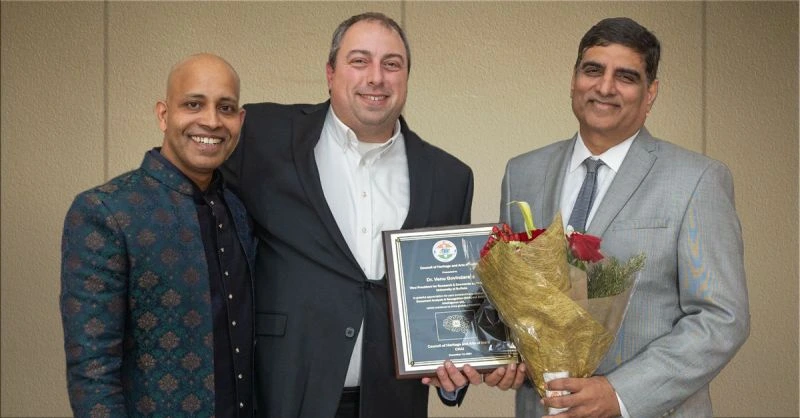
Dr Venu Govindaraju with Sibu Nair and Brian Kulpa after receiving the honour of the Person of the Year by CHAI
Despite this illustrious list of honours, Dr. Govindaraju remains deeply grounded. His awards include the 2001 International Conference on Document Analysis and Recognition Young Investigator Award, the 2004 MIT Global Indus Technovator Award, and the 2010 IEEE Technical Achievement Award. Further cementing his legacy, he was honoured with the Indian Institutes of Technology (IIT) Distinguished Alumnus Award in 2014 and the IAPR/ICDAR Outstanding Achievements Award in 2015. That same year, he was named a Fellow of the National Academy of Inventors.
Driven by a profound love for discovery and a desire to inspire the next generation, he continues to lead transformative research and educational initiatives that redefine the potential of AI to solve real-world challenges. “When you publish, you have an audience out there who can read and see what you have been able to bring to the table,” he reflected. “That satisfaction carries for me, and I love it.”
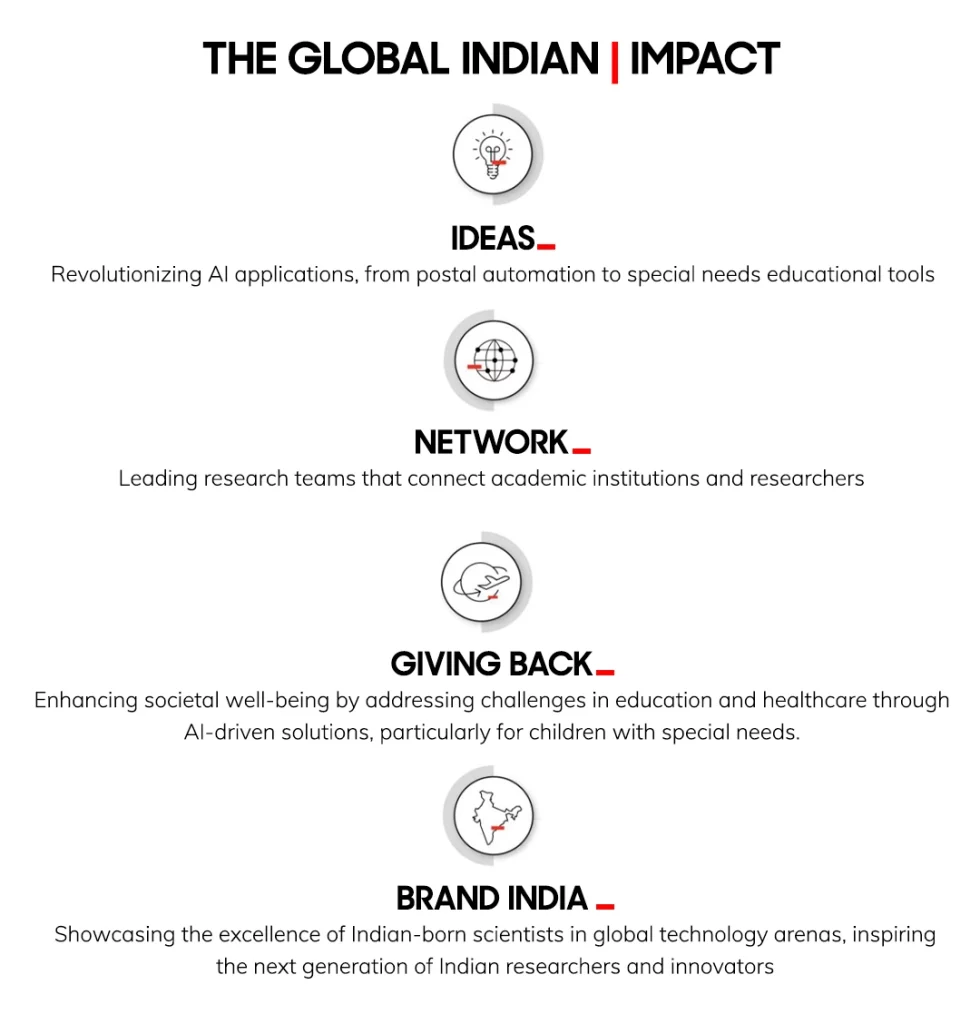
From reshaping postal systems to empowering educators and safeguarding truth in the digital age, Dr. Venu Govindaraju’s work is all about how AI should be used for purpose and integrity. His journey revolves around the transformative power of technology, and a call to use it responsibly—for the betterment of all.
